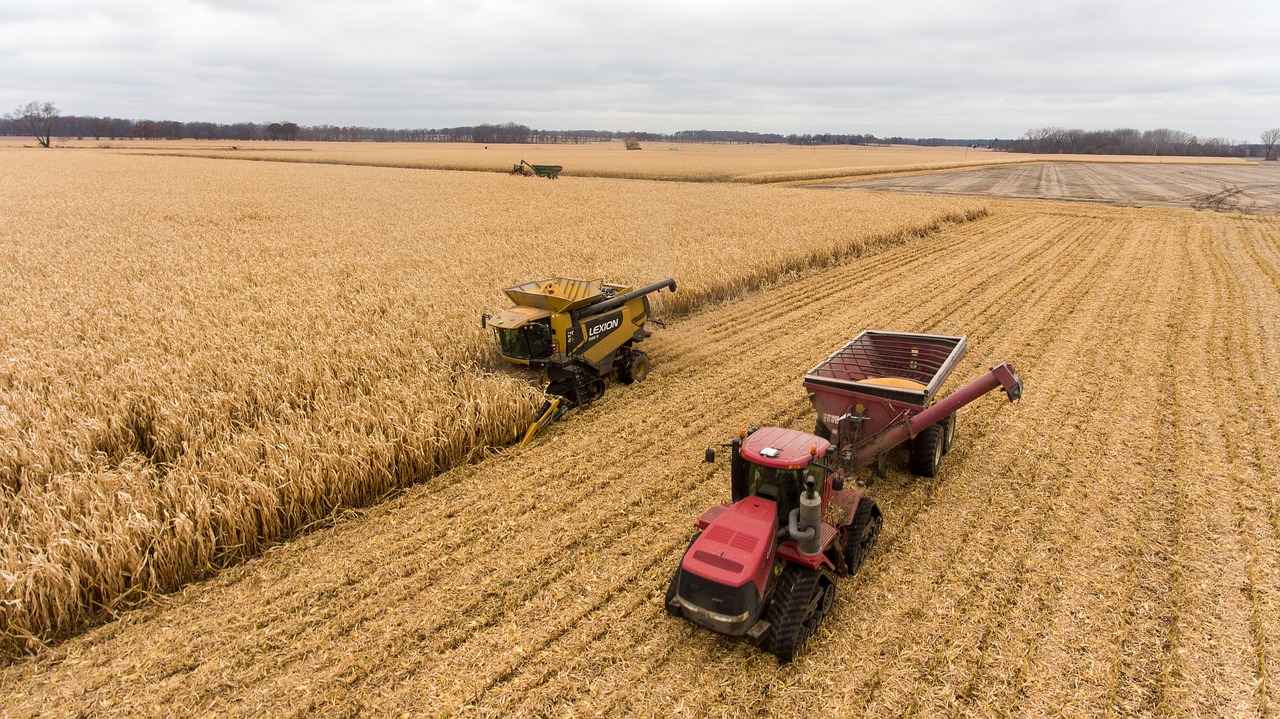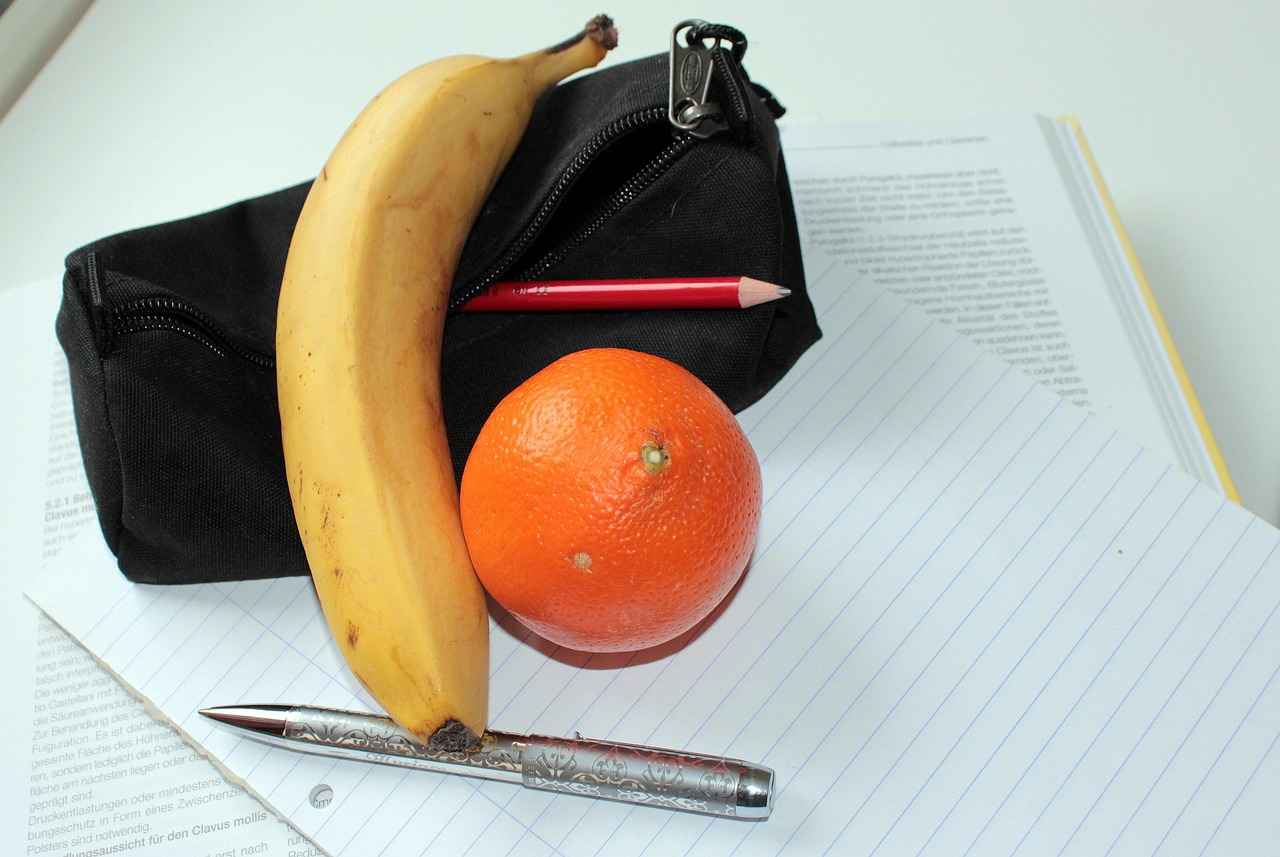This article delves into the innovative design and functionality of phone and card holder cases, highlighting their numerous benefits and how they cater to the needs of the modern lifestyle.
What is a Phone and Card Holder Case?
A phone and card holder case is a versatile accessory that combines protection for your smartphone with convenient storage for cards and cash. This unique design helps streamline your everyday carry, making it an essential item for anyone on the go.
Benefits of Using a Phone and Card Holder Case
- Reduced Bulk: These cases minimize the number of items you need to carry, allowing for a sleeker profile in your pocket or bag.
- Enhanced Convenience: With everything in one place, accessing your phone and cards becomes seamless.
- Improved Organization: Keep your essentials organized and easily accessible, reducing the time spent searching for items.
How to Choose the Right Phone and Card Holder Case
When selecting the perfect case, it’s crucial to consider factors such as material, design, capacity, and compatibility with your device. This ensures that the case meets your personal needs and preferences.
Popular Materials Used in Phone and Card Holder Cases
Phone and card holder cases come in a variety of materials, each offering different levels of protection, style, and durability:
- Leather: Provides a premium look and feel, ideal for those seeking sophistication.
- Silicone: Lightweight and flexible, silicone cases offer excellent shock absorption.
Design Features to Look For
When selecting a case, consider features like card slots, kickstands, and magnetic closures that enhance functionality and user experience.
Conclusion: Is a Phone and Card Holder Case Right for You?
In conclusion, a phone and card holder case can significantly simplify your daily life by combining essential functions into one convenient accessory. This makes it a worthwhile investment for many users looking to enhance their organization and efficiency.

What is a Phone and Card Holder Case?
A phone and card holder case is an innovative accessory designed to enhance the functionality of your smartphone while providing essential protection. This versatile case not only safeguards your device from scratches and drops but also offers convenient storage for your important items, such as credit cards, IDs, and cash. By combining these features, it significantly streamlines your everyday carry, allowing you to travel light and stay organized.
In today’s fast-paced world, where convenience is key, these cases have become increasingly popular. They eliminate the need for bulky wallets, making it easier for users to access their essentials quickly. With a phone and card holder case, you can keep everything in one place, ensuring that you are always prepared, whether you are heading to work, running errands, or going out for a night on the town.
These cases come in various styles and materials, catering to different tastes and lifestyles. For instance, some users may prefer the elegance of a leather case, while others might opt for the practicality of a silicone design. Regardless of the choice, the main goal remains the same: to provide a functional and stylish solution for carrying your phone alongside your vital cards and cash.
With features like multiple card slots, RFID protection, and even built-in kickstands, phone and card holder cases are tailored to meet the diverse needs of modern users. This makes them not just a protective accessory but also a smart organizational tool that enhances your daily routine.
In conclusion, a phone and card holder case is more than just a protective cover; it is a multifunctional accessory designed to simplify your life. By merging the roles of a phone case and a wallet, it provides a seamless experience that caters to the demands of contemporary living.

Benefits of Using a Phone and Card Holder Case
In today’s fast-paced world, the phone and card holder case has emerged as an essential accessory for many individuals. These innovative cases not only protect your smartphone but also provide a convenient storage solution for your cards and cash. Here are some of the key benefits that make them a popular choice:
- Reduced Bulk: Traditional wallets can be bulky and cumbersome. A phone and card holder case combines the functionality of a wallet and a phone case, significantly reducing the bulk you carry daily.
- Enhanced Convenience: With everything in one place, you can easily access your phone and cards without fumbling through a separate wallet. This streamlined approach saves time and effort, especially for busy individuals on the go.
- Improved Organization: These cases typically feature multiple card slots, allowing you to keep your essential cards organized and easily accessible. No more digging through a wallet to find your ID or credit card.
- Stylish Options: Available in a variety of materials and designs, phone and card holder cases can complement your personal style. Whether you prefer a sleek leather finish or a vibrant silicone design, there’s something for everyone.
- Protection: Beyond convenience, these cases provide an additional layer of protection for your smartphone. They shield your device from scratches, drops, and everyday wear and tear, ensuring it stays in excellent condition.
- Versatility: Many phone and card holder cases come with added features like kickstands for hands-free viewing or magnetic closures for added security. This versatility enhances the overall user experience.
In conclusion, the phone and card holder case is not just a trend but a practical solution for modern living. Its combination of reduced bulk, enhanced convenience, and improved organization makes it the ideal accessory for anyone looking to simplify their daily carry.

How to Choose the Right Phone and Card Holder Case
Choosing the right phone and card holder case is essential for both functionality and style. With an overwhelming variety of options available, it is important to consider several key factors to ensure that your chosen case meets your personal needs and preferences.
- Material: The material of the case significantly impacts its durability and aesthetic appeal. Common materials include:
- Leather: Offers a premium look and feel, providing sophistication and adequate protection.
- Silicone: Lightweight and flexible, ideal for shock absorption and everyday use.
- Plastic: Often more affordable, providing decent protection while being lightweight.
- Design: The design of the case should align with your lifestyle. Look for features such as:
- Card Slots: Ensure you have enough slots to carry essential cards without overcrowding.
- Kickstand: A built-in kickstand can enhance usability, allowing for hands-free viewing.
- Color and Style: Choose a design that reflects your personal style and complements your device.
- Capacity: Consider how many cards and cash you typically carry. A case with a higher capacity can help keep your essentials organized.
- Compatibility: Always verify that the case is compatible with your specific smartphone model to ensure a perfect fit and optimal protection.
In conclusion, selecting the perfect phone and card holder case involves a careful evaluation of material, design, capacity, and compatibility. By considering these factors, you can find a case that not only protects your device but also complements your lifestyle.

Popular Materials Used in Phone and Card Holder Cases
When it comes to selecting a phone and card holder case, the choice of material plays a crucial role in determining the overall functionality, style, and durability of the product. Different materials offer unique benefits, catering to various preferences and lifestyles. Below, we explore some of the most common materials used in these innovative cases.
- Leather Cases: Leather cases are synonymous with luxury and sophistication. They provide a classic aesthetic while offering excellent protection against scratches and minor impacts. The natural texture of leather also develops a unique patina over time, adding character to the case. However, it’s essential to note that leather requires proper care to maintain its appearance.
- Silicone Cases: Silicone cases are favored for their lightweight and flexible nature. They offer excellent shock absorption, making them ideal for everyday use. The soft material provides a comfortable grip, reducing the chances of accidental drops. Additionally, silicone cases are often available in a variety of colors and designs, appealing to a wide range of users.
- Polycarbonate Cases: Known for their durability, polycarbonate cases provide robust protection against impacts and drops. They are often used in combination with rubber or silicone to enhance shock resistance. These cases can be found in various styles, including clear options that showcase the phone’s design.
- Fabric Cases: Fabric cases, made from textiles or synthetic materials, offer a unique blend of style and protection. They are often lightweight and can be designed in various patterns and colors. While they provide decent protection, it’s advisable to keep them away from excessive moisture.
- Wooden Cases: For those looking for a more natural aesthetic, wooden cases provide a distinctive look. They are often crafted from sustainable materials and can be customized with engravings. While they offer moderate protection, it’s important to handle them with care to avoid cracking or damage.
In conclusion, the choice of material for your phone and card holder case significantly impacts its functionality and style. Whether you prefer the elegance of leather, the flexibility of silicone, or the durability of polycarbonate, understanding the benefits of each material will help you make an informed decision that suits your lifestyle.
Leather Cases
are not just a protective accessory for your smartphone; they embody a blend of style and functionality. With their luxurious texture and elegant appearance, leather cases provide a premium look that enhances the overall aesthetic of your device.
One of the standout features of leather cases is their ability to age beautifully. Over time, the leather develops a unique patina, making each case one-of-a-kind. This characteristic appeals to those who appreciate craftsmanship and wish to own a product that tells a story through its wear. Furthermore, leather is known for its durability, offering a level of protection that can withstand the rigors of daily use.
In addition to their visual appeal, leather cases are designed with practicality in mind. Many models come equipped with card slots and compartments for cash, allowing users to carry essentials without the need for a bulky wallet. This two-in-one functionality is particularly advantageous for individuals who prefer a minimalistic approach to their everyday carry.
When considering a leather case, it’s essential to evaluate the quality of the material. Full-grain leather is often recommended as it retains the natural grain and texture, providing a luxurious feel and superior durability. On the other hand, genuine leather is a more affordable option that still offers a stylish appearance but may not be as resilient.
In conclusion, leather cases are a sophisticated choice for those looking to protect their devices while making a fashion statement. They combine elegance with practicality, making them an ideal accessory for modern lifestyles. Whether you’re attending a business meeting or enjoying a casual outing, a leather case can enhance your look while ensuring your smartphone remains safe and secure.
Silicone Cases
have become increasingly popular among smartphone users, and for good reason. These cases are not only lightweight and flexible, but they also provide excellent shock absorption, making them an ideal choice for those who lead an active lifestyle. The casual aesthetic offered by silicone cases appeals to a wide range of users, allowing them to express their personal style while keeping their devices protected.
One of the primary advantages of using a silicone case is its ability to cushion your device against accidental drops and impacts. This is especially important for individuals who may frequently find themselves in situations where their phone could be at risk, such as during outdoor activities or while commuting. The flexibility of silicone also means that these cases can easily be slipped on and off, allowing for quick changes in style or easy cleaning.
In addition to protection, silicone cases often come in a variety of colors and designs, catering to different tastes and preferences. Whether you prefer a vibrant hue or a more subdued tone, there’s likely a silicone case that matches your style. The casual aesthetic of these cases makes them suitable for everyday use, seamlessly blending into any environment.
Moreover, silicone cases are generally affordable compared to other materials, such as leather or hard plastic. This accessibility allows users to purchase multiple cases to match different outfits or occasions without breaking the bank. Additionally, the material is typically resistant to dirt and grime, making it easy to maintain its appearance over time.
In conclusion, silicone cases offer a perfect blend of protection, style, and affordability, making them an excellent choice for anyone looking to safeguard their smartphone while maintaining a casual look. Their lightweight nature and shock-absorbing capabilities make them particularly appealing for daily use, ensuring that your device stays safe and stylish.

Design Features to Look For
When selecting a phone and card holder case, it is crucial to evaluate various design features that not only enhance the aesthetic appeal but also significantly improve functionality. Here are some key elements to consider:
- Card Slots: The number and arrangement of card slots are vital. A case with multiple slots allows you to carry essential cards such as credit cards, IDs, and transit passes without the need for a separate wallet. Look for cases that offer easy access to these slots for added convenience.
- Kickstand Functionality: A built-in kickstand can transform the way you use your phone. This feature allows for hands-free viewing, making it perfect for watching videos, video calls, or even following recipes while cooking. Ensure the kickstand is sturdy and can hold the phone at multiple angles.
- Magnetic Closures: Cases with magnetic closures provide a secure way to keep your cards and cash safe. This feature not only enhances security but also allows for quick access to your items when you need them. Look for strong magnets that ensure the case remains closed during everyday activities.
- Material Quality: The material of the case affects both durability and style. Options like premium leather offer a sophisticated look, while silicone provides a lightweight and flexible alternative. Choose a material that aligns with your lifestyle and usage patterns.
- Accessibility: Ensure that the design of the case allows easy access to all buttons, ports, and features of your phone. A well-designed case will not obstruct the camera, charging port, or volume buttons, ensuring that you can use your phone seamlessly.
By considering these design features, you can select a phone and card holder case that not only meets your functional needs but also complements your personal style.
Card Slot Capacity
When considering a phone and card holder case, one of the most crucial factors to evaluate is the . The number of card slots in a case can vary significantly, catering to different user needs and preferences. A well-designed case will allow you to carry your essential cards without creating a cluttered or bulky experience.
Choosing a case with the right capacity is essential for several reasons:
- Organization: Having dedicated slots for your cards helps keep them organized and easily accessible. This is particularly important for individuals who rely on multiple cards for daily transactions.
- Convenience: A case that holds just the right number of cards means you won’t have to dig through a pile of items to find what you need. This streamlined approach can save time and reduce frustration.
- Minimalism: Opting for a case with an appropriate number of slots encourages a minimalist lifestyle. It allows you to carry only what is necessary, avoiding the temptation to overcrowd your case with unused cards.
- Protection: A well-fitted card holder can protect your cards from wear and tear, ensuring that they remain in good condition. This is especially vital for cards with magnetic strips or chips.
When selecting your phone and card holder case, consider your daily needs. If you frequently use a variety of cards, look for designs that offer multiple slots. Conversely, if you prefer to carry only a few essentials, a case with fewer slots may suffice.
Ultimately, the right card slot capacity can enhance your overall experience with the case, making it a functional and stylish accessory in your daily life.
Kickstand Functionality
is an essential feature that significantly enhances the user experience of phone and card holder cases. This innovative design element allows users to enjoy hands-free functionality, making it easier to watch videos, participate in video calls, or even browse the web without needing to hold the device. The convenience of a built-in kickstand cannot be overstated, especially for those who are constantly on the go.
When considering a phone and card holder case, it’s crucial to assess the kickstand’s design. A well-designed kickstand should provide stability and support at multiple angles, allowing users to adjust their viewing preference based on their activity. Whether you’re watching a movie during your commute or joining a virtual meeting, a versatile kickstand can transform your device into a mini workstation.
Moreover, the integration of a kickstand does not compromise the case’s protective features. Many manufacturers ensure that the kickstand is robust yet unobtrusive, maintaining the sleek profile of the case. This means you can enjoy the best of both worlds: protection and functionality.
In addition to its practical applications, the kickstand feature also contributes to the overall aesthetic appeal of the case. Many designs incorporate stylish elements that complement the phone’s look while providing this essential functionality. This balance of style and utility is particularly appealing to users who value both fashion and function.
Ultimately, investing in a phone and card holder case with a built-in kickstand can greatly improve your daily routine. It allows for a seamless transition between tasks, making your device not just a communication tool, but a versatile companion for entertainment and productivity.

Compatibility with Smartphone Models
When selecting a phone and card holder case, it is crucial to ensure that it is compatible with your specific smartphone model. This is essential for achieving a perfect fit and providing optimal protection for your device. A case that is not designed for your exact model may lead to issues such as inadequate coverage, obstructed ports, or even damage to your phone due to poor fit.
The first step in ensuring compatibility is to check the model number of your smartphone. This information can typically be found in the settings menu or on the device itself. Once you have identified your model, you can then search for cases that are specifically labeled for that model.
Additionally, consider the following factors when assessing compatibility:
- Dimensions: Each smartphone model has unique dimensions. A case that fits one model may not fit another, even if they appear similar.
- Button Placement: The location of buttons and ports can vary between models. A well-designed case will ensure that all buttons are accessible without obstruction.
- Camera and Sensor Alignment: Proper alignment of the camera cutout and sensors is vital for functionality. A misaligned case can interfere with your phone’s performance.
Moreover, many manufacturers provide a list of compatible models on their product pages. This can help you quickly identify whether the case will work with your smartphone. In addition, reading customer reviews can provide insights into the fit and functionality of the case for your specific model.
In conclusion, taking the time to ensure that your phone and card holder case is compatible with your smartphone model is essential. This attention to detail will not only enhance the aesthetic appeal of your device but also safeguard it from potential damage, allowing you to enjoy both style and functionality.

Top Brands Offering Phone and Card Holder Cases
In the ever-evolving world of smartphone accessories, phone and card holder cases have emerged as a must-have item for many users. These cases not only protect your device but also provide a practical solution for carrying essential cards and cash. Several reputable brands have carved a niche in this market, known for their high-quality offerings that combine durability, style, and customer satisfaction.
| Brand | Key Features | Price Range |
|---|---|---|
| Brand A | Innovative designs, premium materials, excellent protection | $$$ |
| Brand B | Affordable options, variety of designs, good quality | $$ |
| Brand C | Eco-friendly materials, stylish aesthetics, customizable | $$$ |
| Brand D | Rugged designs, shockproof, high durability | $$$ |
Brand A is celebrated for its innovative designs that seamlessly blend functionality with aesthetics. Users appreciate the premium materials used, ensuring both quality and longevity. This brand often features cases that provide excellent protection without sacrificing style.
Brand B, on the other hand, focuses on affordability, making it accessible to a wider audience. Their range includes various designs suitable for different tastes, ensuring that everyone can find something that fits their style without breaking the bank.
Brand C stands out with its commitment to sustainability, offering cases made from eco-friendly materials. Their stylish aesthetics and customization options appeal to environmentally conscious consumers who do not want to compromise on style.
Lastly, Brand D is known for its rugged designs, perfect for those who lead an active lifestyle. These cases are shockproof and built to withstand the rigors of daily use, making them ideal for outdoor enthusiasts.
Each of these brands brings unique qualities to the table, catering to a variety of user needs and preferences. Whether you prioritize style, affordability, sustainability, or durability, there’s a phone and card holder case brand that will meet your requirements.
Brand A
has made a significant mark in the smartphone accessory market, particularly with its phone and card holder cases. These cases stand out due to their innovative designs and the use of premium materials, which cater to the needs of modern smartphone users. With an increasing demand for accessories that combine style and functionality, Brand A has positioned itself as a leader in this niche.
One of the key features of Brand A’s products is their attention to detail. Each case is designed not only to protect the device but also to enhance the user’s experience. The incorporation of card slots and compartments for cash allows users to carry their essentials without the need for a bulky wallet. This is particularly appealing to those who prefer a minimalist approach to everyday carry.
Moreover, Brand A’s commitment to quality is evident in the materials they choose. From luxurious leather options that exude sophistication to durable silicone variants that offer shock absorption, customers can select a case that fits their lifestyle. The versatility of these materials ensures that there is something for everyone, whether they are looking for elegance or practicality.
In addition to aesthetics and functionality, Brand A also focuses on durability. Each case undergoes rigorous testing to ensure it can withstand the rigors of daily use while maintaining its stylish appearance. This dedication to quality has garnered a loyal customer base, with many users praising the longevity of their products.
Ultimately, Brand A has successfully merged style and functionality in its phone and card holder cases, making them a top choice for smartphone users. As the demand for multifunctional accessories continues to grow, Brand A is well-positioned to remain a favorite among consumers seeking both form and utility.
Brand B
stands out in the market by prioritizing affordability without sacrificing quality. This brand offers a diverse selection of products that cater to a wide array of preferences and financial plans, making it accessible for all consumers.
In today’s fast-paced world, where budgets can often dictate choices, Brand B ensures that customers do not have to compromise on essential features or aesthetics. Their products are designed to meet the needs of various demographics, from students seeking budget-friendly options to professionals looking for reliable accessories.
The brand’s commitment to value is evident in its extensive range of offerings. Whether you are searching for a sleek phone case or a functional card holder, Brand B provides options that are not only economical but also stylish. Each product is meticulously designed to balance functionality with modern trends, appealing to a broad audience.
Moreover, Brand B continually engages in market research to understand consumer needs better. This dedication allows them to adapt their product lines, ensuring that they remain relevant and appealing. Customers can find everything from minimalist designs to vibrant patterns, catering to individual tastes while maintaining a reasonable price point.
One of the standout features of Brand B’s products is their durability. Despite being budget-friendly, the materials used are of high quality, providing adequate protection and longevity. This means customers are not only saving money upfront but also investing in products that will last.
In conclusion, Brand B has successfully carved a niche in the competitive landscape by focusing on affordability and quality. Their commitment to offering a variety of options ensures that every consumer can find something that fits their lifestyle and budget, making them a go-to choice for those seeking reliable and stylish products.

Care and Maintenance Tips for Your Case
To ensure your phone and card holder case remains in optimal condition, it’s essential to follow a few simple care and maintenance practices. Proper care can significantly extend the lifespan of your case, keeping it functional and visually appealing over time.
- Regular Cleaning: It’s important to clean your case regularly to prevent dirt and grime buildup. Use a soft, damp cloth with mild soap to gently wipe the surface. For leather cases, consider using a leather conditioner to maintain its texture and prevent cracking.
- Inspect for Wear and Tear: Make it a habit to check your case for any signs of damage, such as fraying edges, cracks, or loose components. Addressing these issues early can prevent further damage and ensure your case continues to provide adequate protection.
- Avoid Extreme Conditions: Protect your case from extreme temperatures and moisture. Avoid leaving it in direct sunlight for prolonged periods, as this can cause fading and material degradation.
- Store Properly: When not in use, store your case in a cool, dry place. Avoid stacking heavy items on top of it to maintain its shape and structure.
- Use a Screen Protector: To complement your phone case, consider using a screen protector. This adds an extra layer of protection against scratches and impacts, preserving the overall appearance of your device.
By following these maintenance tips, you can ensure that your phone and card holder case remains a reliable and stylish accessory for years to come. A little care goes a long way in enhancing both functionality and aesthetics.
Cleaning Your Case
Maintaining your phone and card holder case is essential for both its appearance and hygiene. Regular cleaning not only prevents the buildup of dirt and grime but also ensures that your case remains in optimal condition, extending its lifespan.
- Choose the Right Cleaning Materials: Use soft, lint-free cloths and gentle cleaning solutions that are appropriate for the material of your case. For instance, leather cases may require special leather cleaners, while silicone cases can often be wiped down with a damp cloth.
- Establish a Cleaning Routine: Aim to clean your case every few weeks, or more frequently if you notice visible dirt or stains. Regular maintenance will help keep your case looking new and prevent any buildup that can be harder to remove.
- Inspect for Damage: While cleaning, take the opportunity to inspect your case for any signs of wear and tear. Look for scuffs, cracks, or loose parts that may need attention. Early detection can prevent further damage and ensure your case continues to provide protection.
Additionally, you can use a disinfectant wipe to sanitize your case, especially during flu season or after being in crowded places. This extra step can help keep your phone and cards safe from germs.
In conclusion, regular cleaning with the right materials is crucial for maintaining the visual appeal and hygiene of your phone and card holder case. By incorporating these practices into your routine, you can enjoy a cleaner, more functional accessory that complements your modern lifestyle.
Inspecting for Wear and Tear
Regularly inspecting your phone and card holder case is crucial to ensure it remains in top condition and continues to provide the necessary protection for your device. Over time, even the most durable cases can show signs of wear and tear, which can compromise their functionality. Here are some key points to consider when conducting your routine checks:
- Check for Cracks and Breaks: Inspect the case for any visible cracks or breaks. These can weaken the structure and expose your phone to potential damage.
- Look for Worn Edges: The edges of the case are often the first areas to show signs of wear. If they are frayed or worn down, it may be time to consider a replacement.
- Assess the Card Slots: Ensure that the card slots remain functional. If they are stretching or tearing, they may not securely hold your cards, leading to potential loss.
- Evaluate the Closure Mechanism: If your case has a magnetic or snap closure, check that it still functions properly. A faulty closure can lead to accidental openings and exposure to elements.
- Inspect for Discoloration: Especially for cases made of materials like leather or silicone, discoloration can indicate wear. Regular cleaning can help maintain appearance, but significant discoloration may require replacement.
By performing these routine checks, you can identify any issues early on. Addressing these concerns promptly not only extends the life of your case but also ensures that your phone remains protected from drops, scratches, and other potential hazards. Remember, a well-maintained case is essential for keeping your device safe and functional.

Conclusion: Is a Phone and Card Holder Case Right for You?
In today’s fast-paced world, the need for convenience and efficiency is more important than ever. A phone and card holder case serves as a remarkable solution, merging the functionalities of a protective case and a wallet into one sleek accessory. This innovative design not only protects your smartphone from potential damage but also allows you to carry essential items like credit cards, IDs, and cash without the need for an additional wallet.
One of the primary advantages of using a phone and card holder case is the significant reduction in bulk. By consolidating your items into one compact solution, you can enjoy a more streamlined experience while on the go. This is particularly beneficial for those who lead busy lives, as it simplifies the process of accessing your phone and cards when you need them most.
Moreover, these cases enhance organization by providing dedicated slots for your cards, ensuring that everything is in one place. No more fumbling through bags or pockets to find your essentials; everything you need is conveniently located at your fingertips. This level of accessibility can save you precious time and reduce stress during your daily routines.
When considering whether a phone and card holder case is right for you, it’s essential to evaluate your lifestyle and daily needs. If you frequently find yourself in situations where you need to carry both your phone and cards, investing in this type of case could be a game-changer. Additionally, various designs and materials are available, allowing you to choose one that aligns with your personal style and preferences.
In conclusion, a phone and card holder case is more than just a trendy accessory; it is a practical investment that can greatly simplify your daily life. By combining essential functions into one convenient item, it caters to the needs of modern users, making it an excellent choice for anyone looking to enhance their everyday carry.
Frequently Asked Questions
- What is a phone and card holder case?
A phone and card holder case is a multifunctional accessory that not only protects your smartphone but also provides storage for cards and cash. It’s like having a mini wallet attached to your phone, making it easier to carry your essentials without the bulk!
- What are the benefits of using a phone and card holder case?
These cases offer numerous advantages, such as reducing bulk in your pockets or bags, enhancing convenience by keeping everything in one place, and improving organization. Perfect for busy lifestyles, they help you stay streamlined and efficient!
- How do I choose the right phone and card holder case?
When selecting a case, consider factors like the material (leather or silicone), design features (like card slots and kickstands), and compatibility with your specific smartphone model. This ensures you get a case that meets your personal style and functional needs!
- Can I clean my phone and card holder case?
Absolutely! Regular cleaning is essential to maintain the appearance and hygiene of your case. Use appropriate cleaning materials to prevent dirt buildup and keep it looking fresh and new!
- Which brands offer the best phone and card holder cases?
Several reputable brands specialize in high-quality options. Brand A is known for its innovative designs and premium materials, while Brand B focuses on affordability without sacrificing quality. There’s something for every taste and budget!














